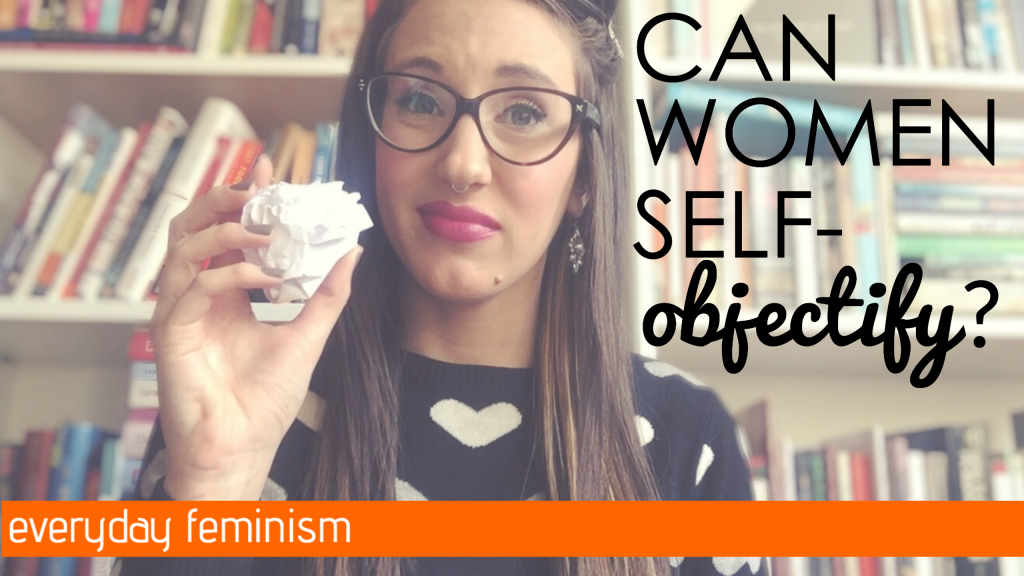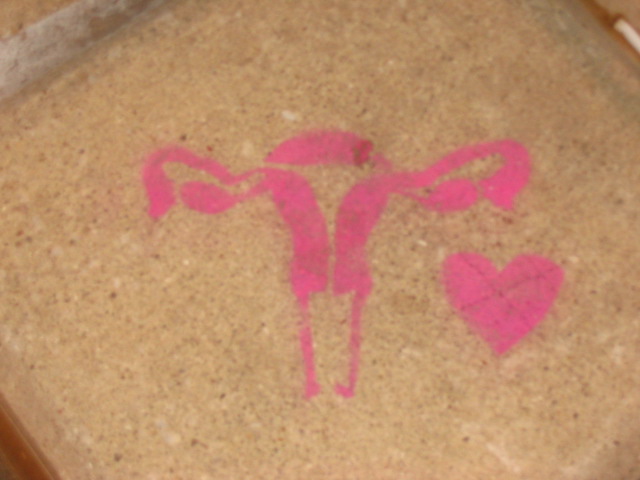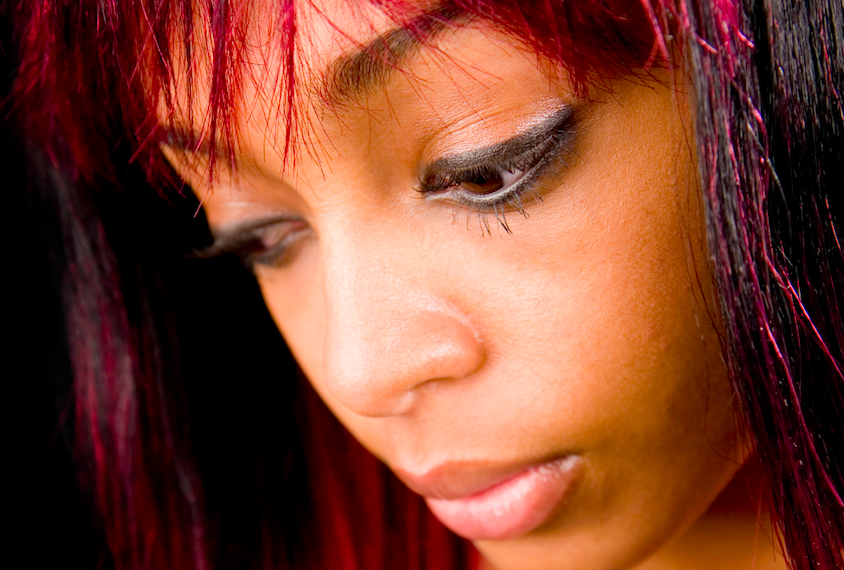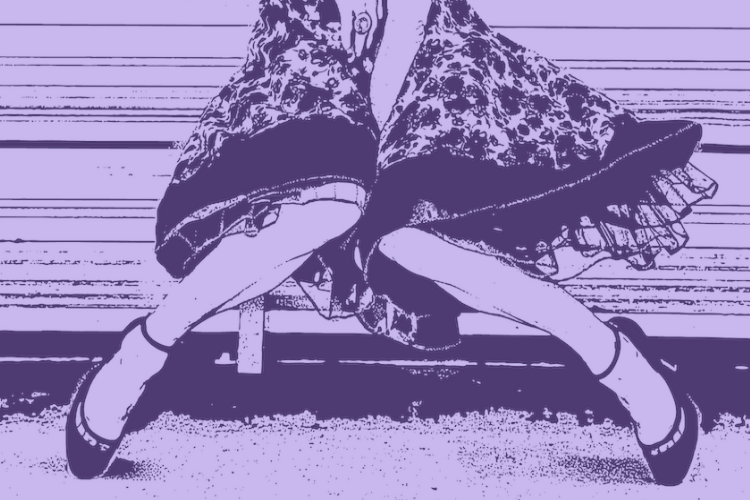Search results for: gender identity
5 Reasons You Should Care About Environmental Justice If You Care About Women
It’s easy to get how some issues relate to feminism – but climate change? If you haven’t paid attention to this connection before, here’s good reason to start.
Read More4 Reasons I Talk About ‘Virginities’ Instead of ‘Virginity’
The concept of virginity is harmful in many ways – but here’s one option that changed this author’s approach for the better. Find out how the idea of multiple virginities helps her.
Read MoreHow Stereotypes Make Black Girls Have to Smile to Survive
Have you ever smiled when you wanted to scream? This poet may not look like the false “angry Black woman” stereotype, but she’s not smiling because she’s happy. Find out why in this gorgeous spoken word piece, as Sabine Quetant shares the truth about the burden of facing the world’s misconceptions about her from the time she was a child. Check it out here.
Read MoreCan Women Self-Objectify?
We usually use “objectification” to refer to the male gaze – but have you ever wondered if a woman posting sexy pictures of herself was “inviting” objectification? Melissa A. Fabello’s smart answer might change your perspective.
Read More7 Reasons Why Patriarchy Is Bad (And Feminism Is Good) For Men
Sure, patriarchy is set up to benefit men – but these patriarchal norms are hurting men, and here’s how feminism can help.
Read More5 Troubling Facts About Male Rape Survivors
“1. It happens more often than you might think.” Cristen Conger is sharing new research that reveals how society fails men who are survivors of rape. Nobody deserves this – here’s what needs to change.
Read More3 Everyday Ways That Men Tone Police Women
“You’re being too emotional.” Have you ever experienced or participated in these common ways of tone policing women? This information from Celia Edell can help us put a stop to it.
Read MoreIs ‘Bitch’ an Example of Internalized Sexism?
Some detrimental cultural ideals run so deep that no one even questions whether they might operate as support beams of status quo oppression. Let’s take the word “bitch” for example. As an exercise in identifying some potentially hibernating connotations that can perpetuate harmful gender stereotypes, here are a few common uses of the word “bitch” and their problematic subtexts.
Read MoreHow the History of Pubic Hair Removal Exposes Society’s Illusions About Your Body
Magazines have declared that pubic hair is “back.” But do you know where messages about your pubic hair really started – and how they affect you today?
Read More5 Ways Society Breeds Vagina-Hate (And How to Combat It)
Society isn’t very nice to vaginas. From a very young age, we’re taught that vaginas are somehow bad or wrong or dirty. But the fact is: Vaginas are the objects of a cultural hate-fest. What if we could fight back against that hate, through sex- and body-positivity, and turn haters into lovers? We can. But first, we have to understand where vagina hate comes from.
Read More3 Questions We Ask Ourselves When Internalized Misogyny Warps Our Point of View
“Am I smart enough for this?” Even if you’re a woman, you might hold harmful ideas about what being a woman means. These ideas for what to ask yourself instead from Celia Edell can help.
Read MoreI’m a 60-Year-Old Feminist Who Just Decided To Get Married
She used to say she was married to her career. Find out what it means for this 60-year-old feminist to exchange independence for interdependence.
Read More5 Ways the Word “Strong” is Used Against Black Women
Yes, black women have strength. But time and time again, the word “strong” has been used to dehumanize black women, to trivialize their pain, to create an impossible standard for young black girls to strive towards. For black women, taking that strength back means calling out the ways in which their strength is used against them.
Read MoreCameras, Consent and Conservative Rapeyness
We live with a deep and persistent societal tolerance for the use of women’s bodies by others for their own purposes, profit, political gain and entertainment. Cameras and harassment are the tip of an iceberg of male regulation of women’s bodies and behaviors. Legislation, based on a cultural acceptance of women’s bodies as public resources, is much more pernicious.
Read MoreBlack Girls Are Tired of These Phrases – And Here’s Amandla Stenberg’s Perfect Summary of Why
“Can I touch your hair?” is only the beginning. Many of these phrases are meant as “compliments,” but Amandla Stenberg and some of her brilliant friends are breaking down exactly why they’re hurtful. What would you add to the list?
Read More6 Badass Women Answer: What Does Being a Latina Feminist Mean to You?
What does it mean to be a Latina feminist? Everyone has a unique experience, and here are six women who are making a big difference in the world. Their words have a lot that you may be able to relate to and learn from.
Read More5 Ways ‘Respectability Politics’ Blame Black Women for Their Own Oppression
Your appearance, your emotions, your sexuality and more – have you learned any of these lessons in respectability politics? This info helped this author start to unlearn the racist self-hatred – and it might help you do the same.
Read More7 Myths About Women and Masturbation It’s Time to Unlearn Right Now
“You masturbate?” We’re taught that women’s sexuality only exists for other people – and if you believe any of these masturbation myths, you might be falling for that lie.
Read More5 Reasons We Need to Ditch the Idea of ‘The Friendzone’ for Good
You can probably think of a few issues with the “friendzone” concept. But these common myths about sex and relationships show what we’re really dealing with in a society that’s come up with this idea.
Read More48 Things Men Are Told Over Their Lifetimes (That Are Actually Toxic)
“Boys don’t play with dolls.” How can we address the patriarchy’s impact on men? The first step is to recognize how it harms them – and this video captures 70 years of toxic messages around masculinity. What would you add to the list?
Read More




















